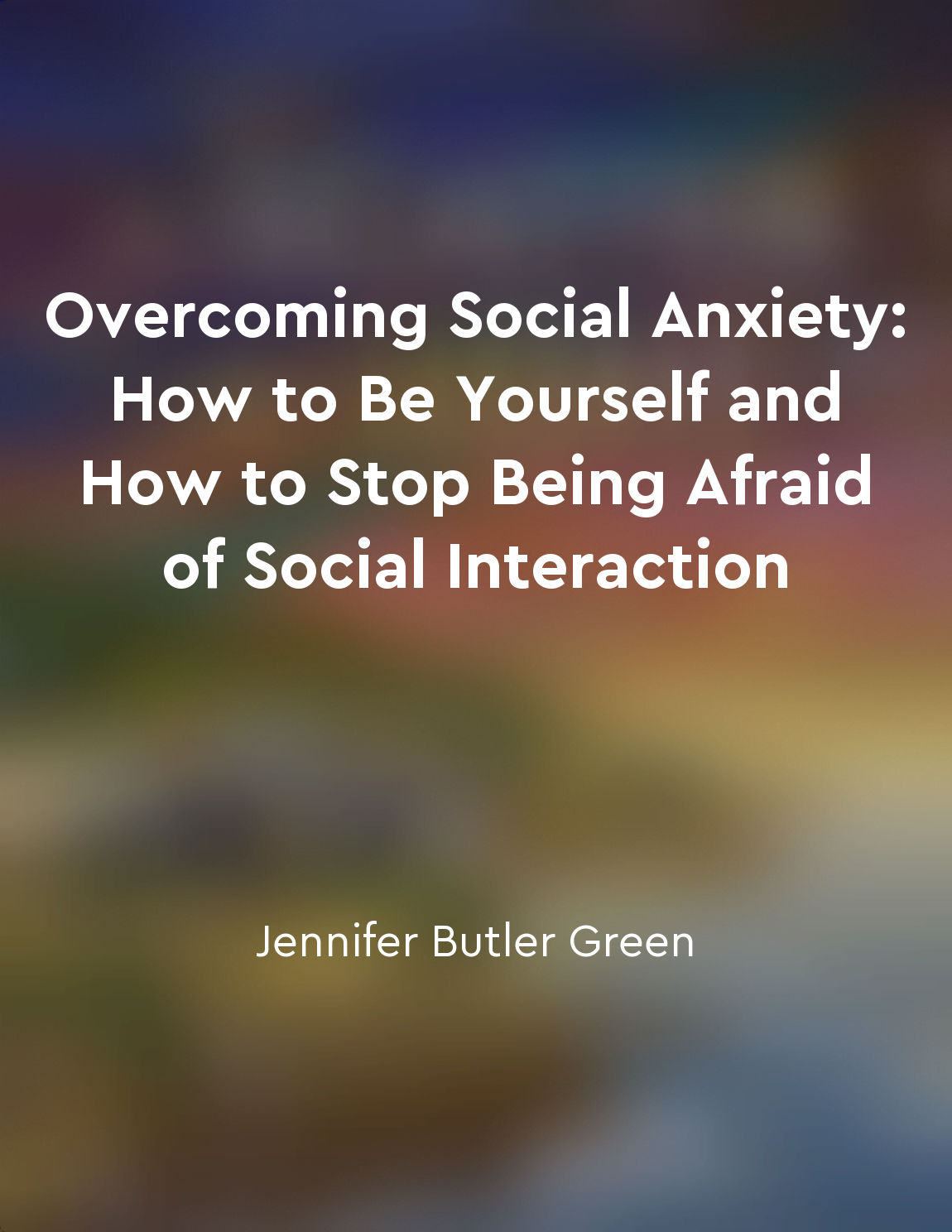Gradual exposure is helpful from "summary" of Overcoming Social Anxiety: How to Be Yourself and How to Stop Being Afraid of Social Interaction by Jennifer Butler Green
Gradual exposure is a helpful technique when it comes to overcoming social anxiety. This approach involves gradually facing situations that make you anxious, starting with less intimidating scenarios and working your way up to more challenging ones. By gradually exposing yourself to these situations, you give yourself the opportunity to build confidence and reduce your fear over time. The key to successful gradual exposure is to start small. Begin by identifying situations that trigger your anxiety but are not overwhelmingly stressful. For example, if you feel anxious about speaking up in a group setting, you could start by sharing your thoughts with a close friend or family member. As you become more comfortable in these low-pressure situations, you can gradually increase the level of difficulty. It's important to remember that progress may be slow, and setbacks are normal. Don't be discouraged if you feel anxious or uncomfortable during exposure exercises. It's all part of the process of overcoming social anxiety. By consistently facing your fears in a gradual and systematic way, you will gradually build confidence and reduce your anxiety over time. Another important aspect of gradual exposure is to practice self-compassion. Be kind to yourself and acknowledge your efforts, even if they may seem small. Celebrate your successes, no matter how minor they may be. Remember that overcoming social anxiety is a journey, and every step forward is a significant achievement.- Gradual exposure is a helpful technique for overcoming social anxiety. By starting small, practicing self-compassion, and persistently facing your fears, you can gradually build confidence and reduce your anxiety over time. Stay patient and committed to the process, and you will see progress in your ability to be yourself in social situations.


